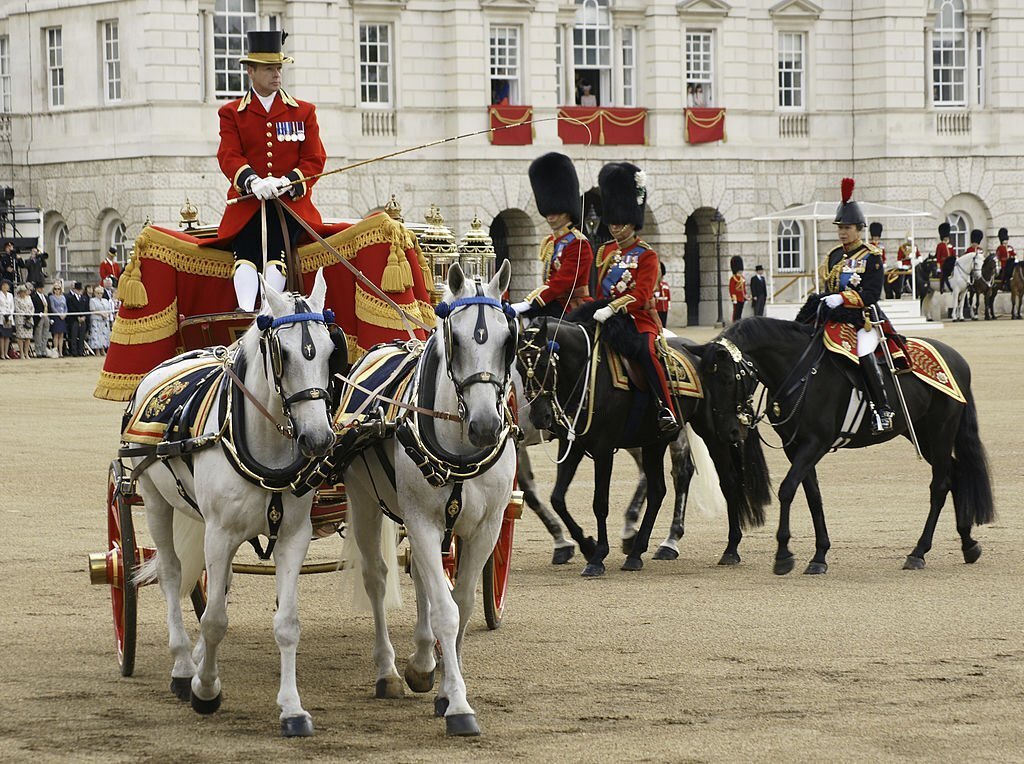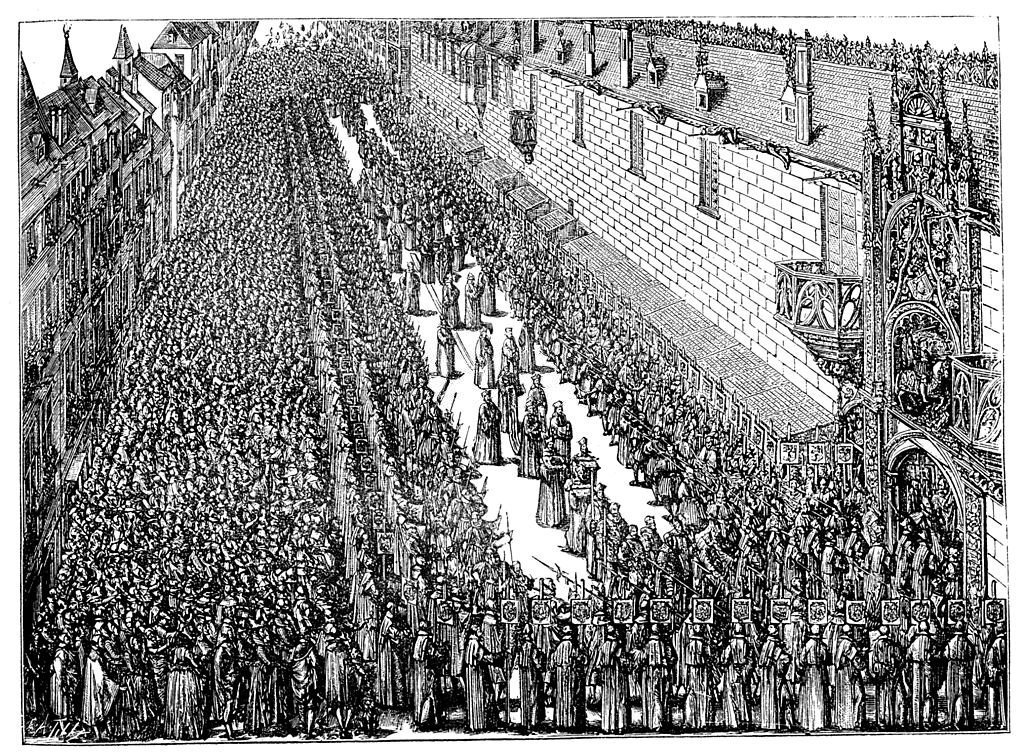Witness the grandeur and historical significance of the glorious coronation of King Charles, a momentous occasion that marks the transition of power in the British monarchy. Explore the traditions, symbolism, and cultural impact of this royal event, highlighting the continuity of the monarchy and its relevance in the modern world. Join us in celebrating this extraordinary milestone in royal history.
Introduction: Glorious Coronation

The coronation ceremony holds immense significance in royal history, symbolizing the formal ascension of a monarch to the throne. It is a sacred and elaborate event that combines tradition, pageantry, and religious rites.
The anticipation and excitement surrounding King Charles’s coronation are palpable. After decades as the heir apparent, King Charles’s ascension to the throne brings a sense of new beginnings and fresh perspectives for the British monarchy.
The coronation of King Charles takes place against the backdrop of a historical transition of power from Queen Elizabeth II, who reigned for a remarkable period. As the longest-reigning monarch in British history, Queen Elizabeth II has left an indelible mark on the monarchy, and her succession to King Charles marks a significant milestone in the continuity of the royal lineage.
Background on King Charles
King Charles’s life and reign are shaped by a rich and diverse background. Born on November 14, 1948, as Charles Philip Arthur George, he is the eldest son of Queen Elizabeth II and Prince Philip, Duke of Edinburgh. His full title upon his ascension will be King Charles III.
King Charles holds the distinction of being the longest-serving heir apparent in British history. For over seven decades, he has patiently waited for his turn to assume the throne, dedicating himself to public service, charity work, and promoting various causes close to his heart.
Key characteristics and values associated with King Charles include a deep sense of duty, a passion for environmental conservation, and a commitment to social and cultural causes. Throughout his life, he has championed issues such as sustainable development, organic farming, and interfaith dialogue. King Charles has also been actively involved in charitable initiatives, establishing organizations like The Prince’s Trust to support young people in need.
Overall, King Charles is known for his thoughtful and introspective nature, as well as his dedication to the well-being of the nation and the world. His reign is expected to reflect his personal convictions and priorities.
The Ceremony

The coronation ceremony in the British tradition is steeped in historical traditions and symbolism. It draws upon centuries-old customs that highlight the sacred nature of the occasion and the monarch’s role as the symbolic head of state. Elements such as the anointing, the crowning, and the taking of oaths carry deep historical and religious significance.
The venue and preparations for King Charles’s coronation are meticulously planned to ensure a grand and awe-inspiring event. Traditionally, Westminster Abbey in London has been the preferred location for coronations, including that of Queen Elizabeth II. However, alternative venues, such as St. Paul’s Cathedral, have been considered in the past. The chosen location undergoes extensive preparations, including the construction of ceremonial structures, seating arrangements, and security measures.
The order of events during the coronation ceremony follows a well-defined protocol. While specific details may vary, the general sequence typically includes the entrance of the sovereign, the opening of the ceremony by the Archbishop of Canterbury, the anointing of the monarch with holy oil, the presentation of the regalia and symbols of authority, the crowning moment, the homage and oaths taken by the dignitaries, and the final blessing. Each step of the ceremony carries historical and symbolic significance, reflecting the continuity of the monarchy and its divine authority.
It is worth noting that the details of King Charles’s coronation ceremony may vary, as each coronation is a unique event tailored to the specific monarch and the contemporary context.
The Crown Jewels
The Crown Jewels hold immense historical and cultural significance in the British monarchy. They consist of a collection of precious and symbolic items, including crowns, scepters, orbs, swords, and other regalia. These items are traditionally associated with the sovereign’s authority and their role as the head of state.
The Crown Jewels have a long and storied history, with some pieces dating back to the medieval period. They represent the continuity of the monarchy and its link to the past. Throughout history, the Crown Jewels have been used in coronations, state ceremonies, and other important royal occasions. They serve as powerful symbols of power, sovereignty, and the divine right to rule.
In the coronation ceremony, the Crown Jewels play a central role. They are prominently displayed and used at various moments, most notably during the crowning of the monarch. The crown, typically adorned with precious gems and metals, represents the pinnacle of the regalia and symbolizes the monarch’s authority. The act of crowning is a defining moment, signifying the official investiture of the monarch with the responsibilities and privileges of the position.
During the moment of crowning, the crown is placed upon the monarch’s head, signifying the culmination of the coronation ceremony. This iconic image carries deep symbolism, representing the passing of power and the public recognition of the new monarch. The Crown Jewels add splendor and magnificence to the occasion, enhancing the sense of grandeur and tradition associated with the coronation.
The Role of the Archbishop of Canterbury
The significance of the Archbishop of Canterbury in the coronation cannot be overstated. As the highest-ranking clergyman in the Church of England, the Archbishop plays a pivotal role in the religious aspects of the ceremony. The presence of the Archbishop emphasizes the close relationship between the monarchy and the Church, which has deep historical and constitutional roots.
The duties and responsibilities of the Archbishop during the coronation are of great importance. The Archbishop presides over key religious rites and administers the sacred oaths to the monarch. They anoint the sovereign with holy oil, symbolizing the divine authority bestowed upon the monarch. The Archbishop also delivers prayers, blessings, and sermons that carry spiritual significance for the monarch and the nation.
The historical importance of the relationship between the monarchy and the Church of England dates back to the English Reformation in the 16th century. The Church of England, led by the Archbishop of Canterbury, became the established church of the realm. Since then, the monarch has been considered the supreme governor of the Church, with the Archbishop serving as a key figure in the coronation, representing the religious establishment.
This historical connection between the monarchy and the Church of England adds a sense of tradition and continuity to the coronation ceremony. It underscores the monarchy’s place as both a secular and spiritual institution, with the Archbishop playing a vital role in ensuring the religious legitimacy of the monarch’s rule.
The Presence of Dignitaries and Guests

The coronation of King Charles is an event of international significance, attracting the attendance of various international dignitaries, including heads of state and representatives from across the globe. It serves as a platform for diplomatic engagement and showcases the strong relationships between the United Kingdom and other nations. The presence of international guests highlights the global impact of the British monarchy and underscores the importance of the occasion.
The royal family plays a central role in the coronation ceremony. As members of the immediate and extended royal family, they participate in various capacities, symbolizing unity, continuity, and support for the new monarch. The royal family’s presence adds a sense of familial tradition and ensures the smooth transition of power within the dynasty. Their involvement also reflects the historical and ceremonial duties expected of the royal family in upholding the monarchy.
The coronation of King Charles is not only a formal affair but also a moment of celebration for the entire nation. The involvement of the public is vital, as it demonstrates the connection between the monarchy and its subjects. Public participation can take the form of public processions, parades, and events held in various parts of the country. These celebrations allow people to share in the joyous occasion and demonstrate their support and loyalty to the new monarch.
Public involvement and celebrations during the coronation contribute to a sense of national unity and pride. They create a shared experience that transcends social and cultural boundaries, fostering a collective memory and appreciation for the monarchy’s role in the nation’s history and identity. Such celebrations also have an economic impact, attracting tourism and promoting national and local businesses.
In conclusion, the presence of international dignitaries, the participation of the royal family, and the public’s involvement and celebrations all contribute to the grandeur and significance of King Charles’s coronation, emphasizing the global, historical, and communal dimensions of the event.
The Address and Oath

King Charles’s coronation address is a pivotal moment during the ceremony. It is a speech delivered by the monarch, which carries immense significance as it sets the tone for their reign and communicates their vision and aspirations for the nation. The address allows the new monarch to address the nation and the world, expressing gratitude, outlining their values, and sharing their goals for their reign. It serves as a unifying message, inspiring the nation and instilling confidence in the monarch’s leadership.
The oath taken by the monarch during the coronation is a solemn commitment to fulfill their duties and uphold the responsibilities of the crown. The content of the oath may vary, but it typically includes a pledge to govern justly, uphold the law, defend the Church, and protect the rights and freedoms of the people. The oath is a symbolic act that reaffirms the monarch’s role as the guardian and servant of the nation, highlighting the mutual obligations between the sovereign and their subjects.
Through the coronation address and oath, King Charles makes promises and commitments to his subjects. These promises may include dedicating oneself to the welfare of the nation, fostering unity, promoting social harmony, supporting constitutional principles, and advancing the interests of the people. The coronation is an opportunity for the monarch to publicly express their dedication to their role and their commitment to serve the best interests of the nation.
The promises and commitments made by King Charles during the coronation reflect the expectations and aspirations of the people. They serve as a foundation for the monarch’s reign, setting the stage for their engagement with the nation, their interaction with the government, and their pursuit of social, economic, and cultural progress. The coronation ceremony represents a significant moment where the monarch publicly declares their intent to fulfill these promises and be a steadfast leader for their subjects.
Public Celebrations and Festivities

The coronation of King Charles is accompanied by nationwide celebrations and festivities that bring people together to commemorate this historic occasion. Throughout the country, communities organize various events, including parades, concerts, street parties, and fireworks displays. These celebrations provide an opportunity for people to express their joy and pride in the monarchy and to collectively celebrate their shared heritage.
Public celebrations in British royal events have a rich historical context. For centuries, the British monarchy has been revered and celebrated by the public. From the grand processions during the Tudor era to the jubilant street parties held during Queen Elizabeth II’s Silver and Golden Jubilees, public involvement has been an integral part of royal celebrations. These events foster a sense of national unity and loyalty, reinforcing the connection between the monarchy and its subjects.
The cultural and economic impact of the coronation celebrations is substantial. Culturally, these events serve as a platform for showcasing British traditions, arts, and heritage. They provide opportunities for artists, musicians, and performers to showcase their talents, promoting cultural diversity and creativity. The celebrations also allow communities to come together and strengthen social bonds.
Economically, the coronation celebrations have a positive impact on various sectors. Tourism sees a significant boost as visitors from around the world travel to witness and take part in the festivities. Local businesses benefit from increased patronage as people dine out, purchase commemorative merchandise, and engage in leisure activities. Additionally, the event generates employment opportunities and stimulates the hospitality, retail, and entertainment sectors.
Moreover, the coronation celebrations have intangible benefits, such as fostering a sense of national pride and identity. They create lasting memories and narratives that become part of the nation’s collective history. The celebrations serve as a reminder of the monarchy’s enduring role and its ability to bring people together in times of celebration and unity.
The nationwide celebrations and festivities surrounding the coronation of King Charles not only contribute to the cultural and economic vitality of the nation but also foster a sense of national cohesion and pride. These events allow people to actively participate in the historic occasion, strengthening their connection to the monarchy and reaffirming the significance of the institution in British society.
Reflection on the Future Reign
As King Charles ascends the throne, he faces both expectations and challenges. Expectations include a fresh perspective on issues such as sustainability, environmental conservation, and social causes that he has championed throughout his life. However, challenges also lie ahead, such as maintaining relevance in a rapidly changing world, addressing societal demands, and balancing tradition with modernity. Additionally, navigating the complexities of constitutional monarchy and maintaining public support are essential tasks for King Charles.
The reign of King Charles has the potential to impact the British monarchy and society in various ways. His focus on environmental and social issues may influence policies and initiatives, fostering a greater emphasis on sustainability, community engagement, and well-being. King Charles’s reign may also see increased involvement in public discourse, bringing attention to important social, cultural, and ethical matters. Additionally, his commitment to charitable work and the continuation of his mother’s legacy may inspire and mobilize a new generation of philanthropists and changemakers.
The significance of continuity and change in the monarchy’s evolution is crucial. While the British monarchy is rooted in tradition and history, it must also adapt to societal shifts and changing expectations. King Charles’s reign offers an opportunity for a thoughtful balance between continuity and adaptation. By upholding core values and traditions while embracing innovation and progress, the monarchy can remain relevant and meaningful in a rapidly evolving world. King Charles’s reign can symbolize a transition to a new era, where the monarchy continues to connect with its subjects while responding to the challenges and aspirations of contemporary society.
Ultimately, the future reign of King Charles holds the potential for positive change, as well as the preservation of essential values and traditions. It will be a delicate balancing act, navigating the expectations and challenges of the modern world while maintaining the unique role of the monarchy. King Charles’s reign will shape the monarchy’s narrative and its relationship with the British people, influencing the institution’s legacy and its ability to adapt and endure.
Conclusion
The coronation of King Charles is a momentous occasion, steeped in historical significance and grandeur. It marks the transition of power from Queen Elizabeth II and symbolizes the continuity of the British monarchy, an institution deeply woven into the fabric of the nation’s history.
The British monarchy, with its rich traditions and cultural heritage, holds a unique place in the modern world. It balances the weight of history with the evolving needs and expectations of society. The coronation of King Charles reaffirms the monarchy’s role as a unifying force, representing the unity and identity of the United Kingdom.
As King Charles ascends the throne, there is optimism for his reign and the future of the United Kingdom. His commitment to environmental sustainability, social causes, and community engagement brings a fresh perspective to the monarchy. With a delicate balance of continuity and change, King Charles has the potential to inspire and lead the nation through the challenges and opportunities of the 21st century.
In conclusion, King Charles’s coronation represents a significant moment in British history. It embodies the enduring spirit of the monarchy, its ability to adapt, and its capacity to serve as a symbol of unity and continuity. As the nation looks toward the future with anticipation, there is hope for a reign that embraces progress, upholds tradition, and serves the best interests of the United Kingdom and its people.
Check out other stories: